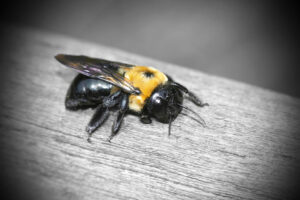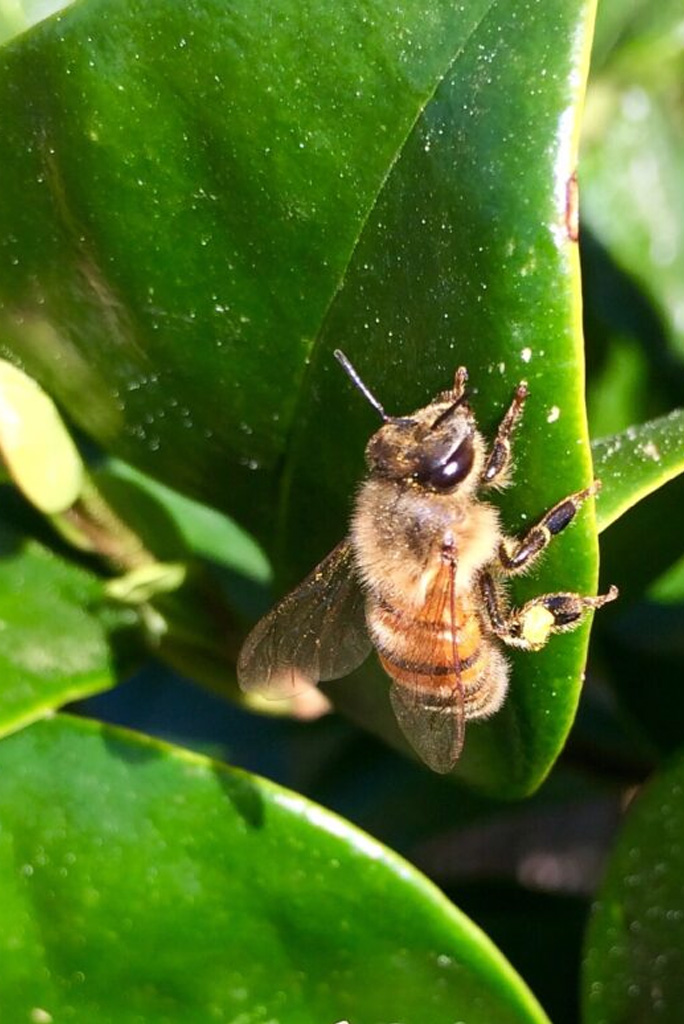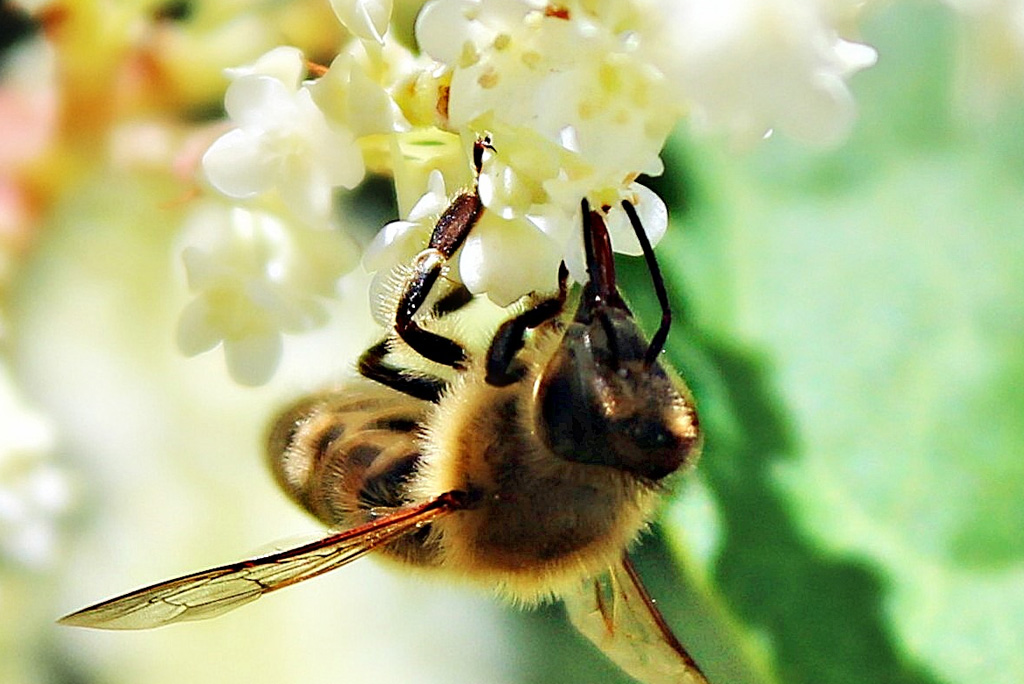Like all bee species, ground bees play an important role in the ecosystem. They pollinate the flowers and aerate the soil, which can help you achieve beautiful vegetation in your garden, for free!
However, when the population of ground nesting bees on your property is growing, this can become disturbing, especially when more aggressive bees move into the burrows that they have built.
Also, the increase in their activity in early spring can alarm many homeowners, especially when these underground nests start appearing in their nicely manicured lawns.
Keep reading as we have laid out some important information to help you identify ground bees that could be nesting in your yard.
What Kind Of Bees Burrow In The Ground?
Ground bees do not live in hives but burrow into the ground to nest. This is not a single species of bee, but rather the different types of bees that burrow underground can be called a ground bee.
Unlike honeybees, these bees are mainly solitary and do not live in colonies, except for the bumblebees that do live in colonies. Both solitary and social bees can burrow in the ground. In fact, 70 percent of all the 20 thousand species of bees live underground.
The species of bees that make single nests in the ground include digger bees, mining bees, sweat bees, mason bees, leafcutter bees, polyester bees, and membrane bees.

How Do You Identify Ground Nesting Bees?
Ground bees come in a variety of shades and sizes. The largest species is furry and about the size of a honeybee but with a darker shade. Other ground nesting bees might have bright stripes or be metallic green in color. Ground bees prefer to nest in dry soil. They create underground tunnels where their queens live individually and raise their own offspring. Also, several females may nest in the same area.
The easiest way to tell if you have ground bees in your yard is to look for their nests. The nests look like small, conical-shaped mounds or piles of dry, bare soil and are a few inches wide and 1 or 2 inches tall. The nest has a concave hole in the center that’s between 0.25 to 0.50 inches wide, which is used by the insect for entrance and exit to the burrow. The burrows can be more than 6 inches deep into the ground, and depending on the species, may have horizontal, vertical, or slanted tunnels.
Are Ground Bees Aggressive?
Unlike wasps or other social bees, ground bees are docile and not aggressive. In general, they are not interested in stinging you.
Female ground bees have stingers and are capable of stinging, which could pose some risk. However, they won’t bother you and will rarely sting, unless disturbed, feel threatened, or defending their nest from intruders. So if you happen to stumble upon the nest, just stay away and everybody will be happy.

On the other hand, males can be very active, look more aggressive, and may fly toward you, but they are harmless. They cannot sting or hurt you as they are not equipped with stingers. They are usually seen hovering around the underground nests, patrolling the area inhabited by females seeking mates.
Because ground-nesting bees are not aggressive, they are more beneficial than they are harmful. They are active foragers of nectar and pollen from flowers, hence they are important pollinators. So if you leave them alone, it will be best for the ecosystem.
Common ground-dwelling solitary bees, where there’s only one female and male per nest, are even less aggressive than social bees that are part of a colony. They also have less energy to defend their nests as they must reproduce, build, and sustain themselves. Solitary bees will sting if handled but are hard to provoke. Ground bee queens do not defend their nesting areas, they are very docile and unlikely to sting, posing little to no risk to homeowners. The colony species of ground bees tend to be more aggressive, especially when trying to defend their nests. Among them, bumble bees are the most likely to sting.
If you start to notice an increasing number of nests in your yard, it’s safe to bet that ground bees could be taking over any day. Call your local pest control expert and ask about the risks associated with the ground bees nesting in your yard.
Although having some ground bees around can be very beneficial, having too many of them around can lead to more serious safety issues. If you believe you have ground bees but can’t be sure, talk to the bee removal experts at Peachtree Pest Control in Atlanta, GA. We understand that the bees are essential to the local ecosystem, so we only use humane methods and eco-conscious products to get rid of them.
